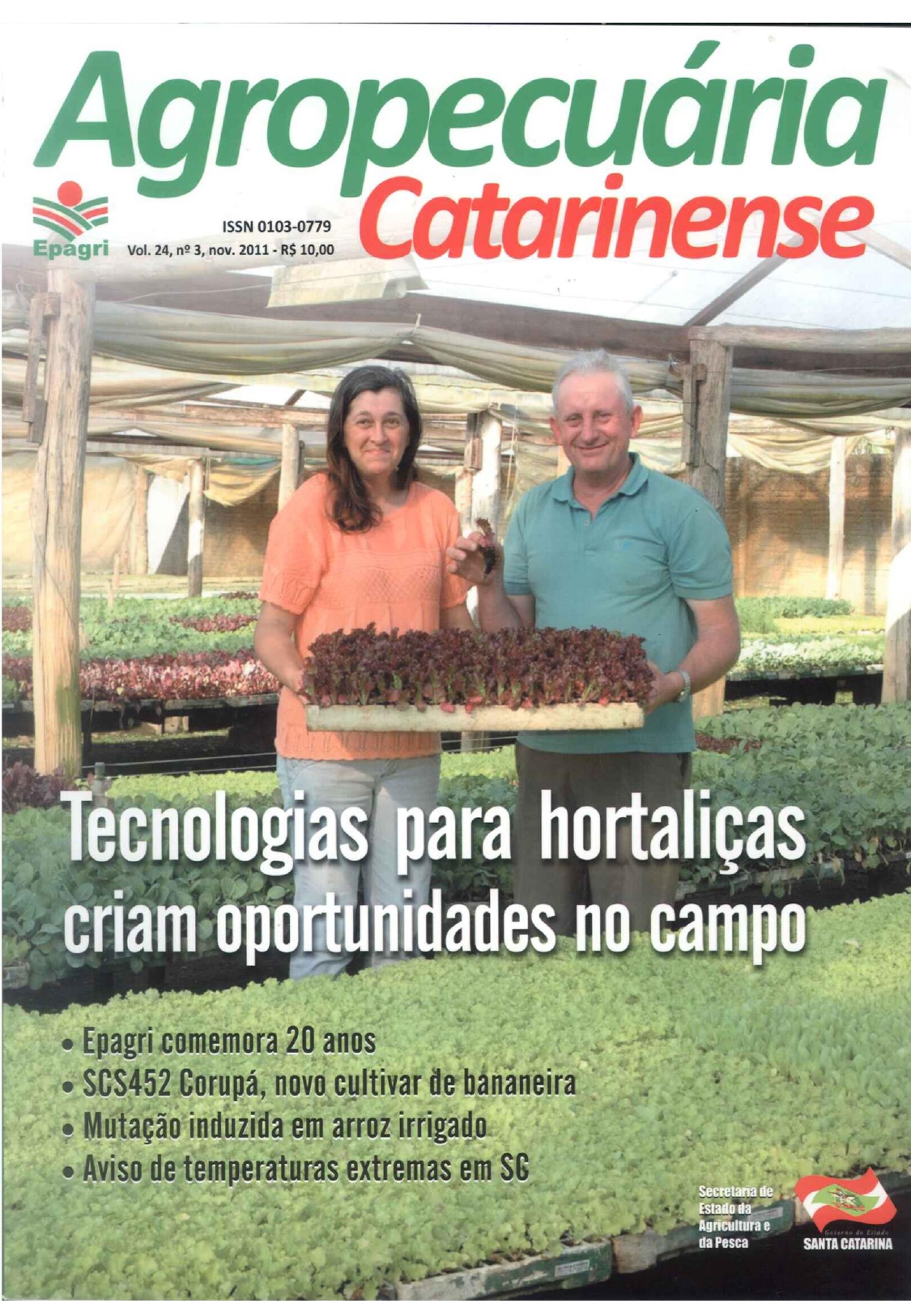Most read articles by the same author(s)
- Juliana Vieira Raimondi, Rubens Marschalek, Rubens Onofre Nodari, Morphological and molecular characterization of Epagri´s rice germoplasm bank in Santa Catarina State, Brazil , Agropecuária Catarinense Journal: Vol. 27 No. 2 (2014)
- Augusto Carlos Pola, Mauro Luiz Lavina, Idelson José de Miranda, Mario Miranda, Murito Ternes, Lucas Miura, Rubens Marschalek, Renato Arcângelo Pegoraro, Áurea Teresa Schmitt, Lucio Francisco Thomazelli, Marcio Ender, Euclides Mondardo, SCS 253-Sangão – a new cultivar of cassava with high dry matter content in the roots , Agropecuária Catarinense Journal: Vol. 21 No. 2 (2008)
- Juliana Vieira, Rubens Marschalek, Takasy Ihsly, Moacir Antonio Schiocchet, Khadine Thatiane Appio, A hibridação no melhoramento genético do arroz irrigado em Santa Catarina , Agropecuária Catarinense Journal: Vol. 20 No. 2 (2007)
- Rubens Marschalek, Sobre a natureza dos nossos alimentos , Agropecuária Catarinense Journal: Vol. 25 No. 2 (2012)



